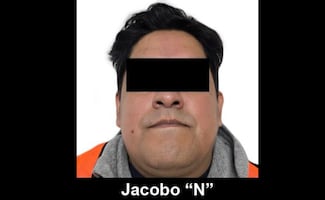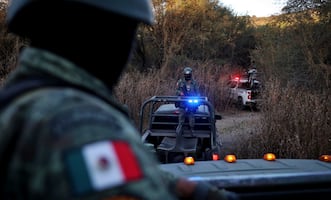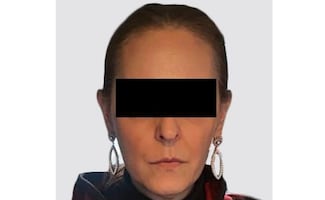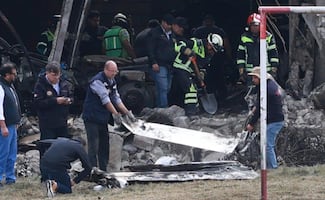Más Información

Vinculan a proceso a "El Yeicob", socio del empresario Raúl Rocha, por delincuencia organizada; le dictan prisión preventiva

Vinculan a proceso a "El Limones" por narcotráfico y posesión de armas; continúa en prisión en el Altiplano

UIF respalda sanciones de EU contra el Cártel de Santa Rosa de Lima; fortalece esfuerzos conjuntos para reducir criminalidad, destaca
On July 11, 2015 Joaquín "El Chapo" Guzmán became the world's most wanted drug trafficker. For the second time he escaped from prison, from the Federal Social Rehabilitation Center No. 1, in El Altiplano, State of Mexico.
According to reports from the U.S. Treasury Department between 2007 and 2014 El Chapo created a criminal network with 95 companies in Mexico, 14 of which have had a business relationship with Mexico's federal government, either through contracts or concessions.
Reports suggest that the Sinaloa Cartel could have business with up ot 288 companies in different countries.
Since 2007, the Office of Foreign Assets Control (OFAC) exposed the huge financial empire of the druglord. A total of 25 companies were listed for their alleged links with the Sinaloa cartel, among them Nueva Industria de Ganaderos de Culiacán, with three concessions from the National Water Commission (Conagua), and Estancia Infantil Niño Feliz, that still provides services for the Mexican Social Security Institute (IMSS).
María Teresa Zambada Niebla, daughter of the Sinaloa cartel member Ismael "El Mayo" Zambada, is one of the founding partners of Estancia Infantil Niño Feliz along with four other members of the same dynasty. Mexico's federal government pays almost eight million pesos (US$492,535) per year to this daycare center.
Other companies owned by the Sinaloa cartel that have worked with Mexico's government are Bioesport, included in the OFAC's list on August 5, 2008, that obtained a contract from Mexico's Federal Electricity Commission (CFE) for 24,000 pesos (US$1,477) three months before. Despite the warnings from the Treasury Department, in March 2011 the CFE awarded a new contract to Bioesport for 9,000 pesos (US$554).
Also, Fletes y Transportes Gaxgar and Aero Express Intercontinental continue to provide transportation services despite having been accused by the U.S. of money laundering and transporting drugs in 2008 and 2010, respectively.
In the first half of this year, the OFAC added eight names to its list: Agrícola y Ganadera Cuemir, Casa de Empeño Guadalajara, Cooperativa Avestruz Cuemir, Prenda Todo, Producción Pesquera Doña Mariela, Taipen, Comercializadora y Frigoríficos de la Perla del Pacífico and Bona-Habitat.
El Chapo has businesses in seven Mexican states. Sinaloa, the birthplace of criminal, tops the list with 35 companies, followed by Jalisco, with 17 businesses and Baja California, Sonora, State of Mexico, Morelos and Mexico City, with one to twelve companies each.
Until mid-2014, when El Chapo continued under the custody of Mexican authorities, the U.S. government said his cartel had annual revenues for three billion dollars.
In fact, Guzmán was included for four consecutive years, from 2009 to 2012, in the list of billionaires of Forbes magazine. The first time he was included in the list he was ranked 701st, and he ended up in the 1153rd position.
El Chapo also has real estate business that have been listed by the OFAC, such as Consorcio Inmobiliario del Valle de Culiacán and Sepriv, both headquartered in Sinaloa. Other companies owned by El Chapo are Comercializadora Joana, with headquarters in Jalisco, and Sin-Mex Importadora. Both have been investigated by Mexico's Assistant Attorney General's Office for Special Investigations on Organized Crime (SEIDO).
Noticias según tus intereses
[Publicidad]
[Publicidad]











